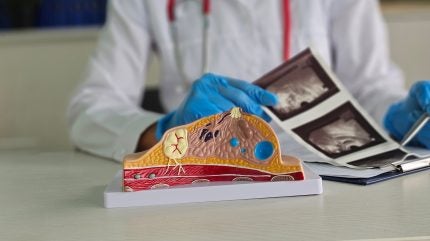

Health Canada has issued a notice of compliance (NOC) for AstraZeneca’shuman epidermal growth factor receptor 2 (HER2)-directed antibody drug conjugate (ADC) Enhertu (trastuzumab deruxtecan) for breast cancer.
The therapy is approved for the treatment of adults with unresectable or metastatic hormone receptor (HR)-positive, HER2-low or HER2-ultralow breast cancer.

Discover B2B Marketing That Performs
Combine business intelligence and editorial excellence to reach engaged professionals across 36 leading media platforms.
This approval covers patients who have undergone at least one endocrine therapy treatment for metastatic disease and are no longer deemed appropriate for additional endocrine treatment.
The decision by the Canadian regulator is supported by the findings from the Phase III DESTINY-Breast06 study.
The safety of the ADC was assessed in 434 participants with unresectable or metastatic HER2-low or HER2-ultralow breast cancer in the trial, all of whom were given the ADC at a dosage of 5.4mg/kg.
In the study, Enhertu was shown to reduce the disease progression or mortality risk by 36% when compared to chemotherapy in those with HER2-low or HER2-ultralow metastatic breast cancer who had not yet received chemotherapy.

US Tariffs are shifting - will you react or anticipate?
Don’t let policy changes catch you off guard. Stay proactive with real-time data and expert analysis.
By GlobalDataThe therapy combines a HER2 monoclonal antibody with a topoisomerase I inhibitor payload, linked via a tetrapeptide-based cleavable linker.
Enhertu is designed utilising the DXd ADC technology of Daiichi Sankyo.
In March 2019, Daiichi Sankyo and AstraZeneca signed a worldwide partnership to develop and commercialise Enhertu, with exceptions for Japan, where Daiichi retains exclusive rights.
The companies also work together on datopotamab deruxtecan.
Daiichi Sankyo oversees manufacturing and supply for both treatments.
Earlier this month, AstraZeneca announced the opening of an expanded manufacturing facility in Texas, US, with an investment of $445m, aiming to meet increasing demand for its hyperkalaemia treatment, Lokelma.
ADC content on Pharmaceutical Technology (Or Clinical Trials Arena) is supported by Syngene. Editorial content is independently produced and follows the highest standards of journalistic integrity. Topic sponsors are not involved in the creation of editorial content.




